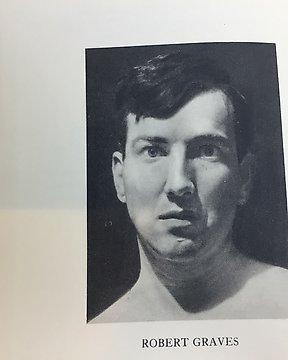
Robert Graves - Good-Bye to All That - 1930
Nr. 82294403

Nr. 82294403

"A Russian Proprietor and other Stories" by Leo Tolstoy, translated from Russian in English by Nathan Haskell Dole - Walter Scott, London - 1888 first UK edition (first English translation) - 18cmx15cm - condition: original blue gilded binding with wear and rubbing to boards and spine linings, ffep excised
Rare first edition of this collection of short stories by Tolstoi
Count Lev Nikolayevich Tolstoy[note 1] (/ˈtoʊlstɔɪ, ˈtɒl-/;[1] Russian: Лев Николаевич Толстой,[note 2] IPA: [ˈlʲef nʲɪkɐˈla(j)ɪvʲɪtɕ tɐlˈstoj] ⓘ; 9 September [O.S. 28 August] 1828 – 20 November [O.S. 7 November] 1910),[2] usually referred to in English as Leo Tolstoy, was a Russian writer. He is regarded as one of the greatest and most influential authors of all time.[3][4] He received nominations for the Nobel Prize in Literature every year from 1902 to 1906 and for the Nobel Peace Prize in 1901, 1902, and 1909.
Born into an aristocratic family, Tolstoy's notable works include the novels War and Peace (1869) and Anna Karenina (1878),[5] often cited as pinnacles of realist fiction,[2] and two of the greatest books of all time.[3][4] He first achieved literary acclaim in his twenties with his semi-autobiographical trilogy, Childhood, Boyhood, and Youth (1852–1856), and Sevastopol Sketches (1855), based upon his experiences in the Crimean War. His fiction includes dozens of short stories such as "After the Ball" (1911), and several novellas such as The Death of Ivan Ilyich (1886), Family Happiness (1859) and Hadji Murad (1912). He also wrote plays and essays concerning philosophical, moral and religious themes.
In the 1870s, Tolstoy experienced a profound moral crisis, followed by what he regarded as an equally profound spiritual awakening, as outlined in his non-fiction work Confession (1882). His literal interpretation of the ethical teachings of Jesus, centering on the Sermon on the Mount, caused him to become a fervent Christian anarchist and pacifist.[2] His ideas on nonviolent resistance, expressed in such works as The Kingdom of God Is Within You (1894), had a profound impact on such pivotal 20th-century figures as Mahatma Gandhi,[6] Martin Luther King Jr.[7] and Ludwig Wittgenstein.[8] He also became a dedicated advocate of Georgism, the economic philosophy of Henry George, which he incorporated into his writing, particularly in his novel Resurrection (1899).
Tolstoy received praise from countless authors and critics, both during his lifetime and after. Virginia Woolf called Tolstoy "the greatest of all novelists",[9] while Gary Saul Morson referred to War and Peace as the greatest of all novels.[10] Tolstoy never having won a Nobel Prize during his lifetime was a major Nobel Prize controversy, and continues to remain one
Hvordan kjøpe på Catawiki
1. Oppdag noe spesielt
2. Legg inn det høyeste budet
3. Å gjøre en sikker betaling